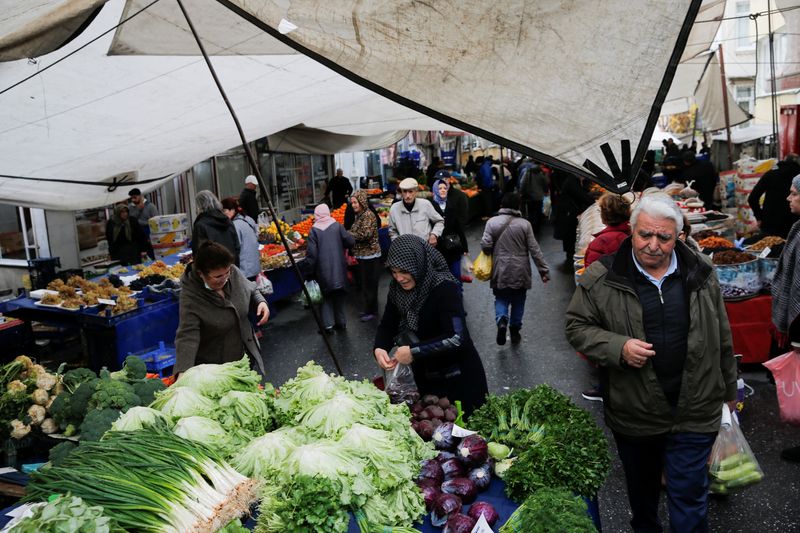ISTANBUL (Reuters) - Turkey's current account deficit widened to $9.85 billion in January, data from the central bank showed on Monday, the highest level in four decades of available data, driven by a soaring energy bill and gold imports.
It was highest monthly deficit since 1984, the first year for which such data is available, according to central bank records. Before that time Turkey did not have an economy large enough to generate such a deficit, data shows.
Flipping Turkey's chronic current account deficit, at $48.7 billion in 2022, into a surplus has been one of the main goals under President Tayyip Erdogan's economic programme that also prioritises growth, exports and employment with low rates.
In a Reuters poll, the median estimate for the current account deficit in January was $10 billion, with forecasts ranging from $6 billion to $11.1 billion.
Turkey's trade deficit, a major component of the current account, widened 38% in January to $14.24 billion, data showed, mainly due to the sharp rise in gold imports and the surging cost of energy imports.
The current account balance showed a deficit of $6.89 billion in the same period last year.
Excluding gold and energy, the current account showed a surplus of $2.6 billion in January, compared with a surplus of $1.7 billion in the same month last year.

Economists expect the current account balance to record further deficits in the coming months and expect the deficit to stand at $43.5 billion at the end of the year, the poll showed.
Economists are also monitoring the impact of the massive earthquakes that hit the country's southeast in February as well as the course of energy and gold imports after authorities introduced measures to limit gold imports last month.